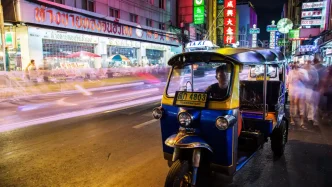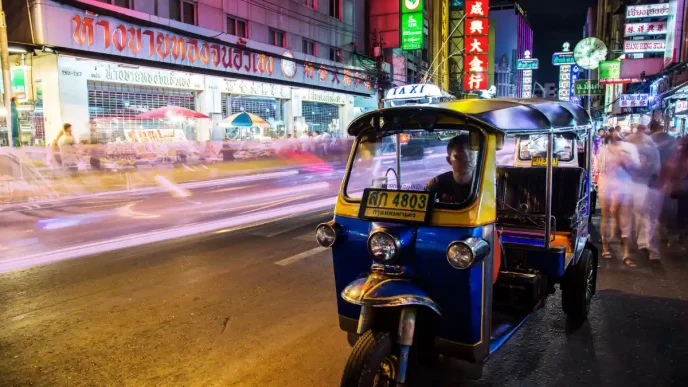A beauty pageant meant to celebrate global unity has instead ignited a firestorm of controversy, with Vietnamese fans expressing outrage over the use of a graphic depicting China’s contentious “10-dash line” during the Miss Global 2025 final in Thailand. The map, which encroaches on territories claimed by Vietnam and other South East Asian nations, including the Philippines, has reopened wounds over long-standing territorial disputes in the South China Sea. While the pageant ended on a high note for Vietnam with Nguyen Đình Nhu Vân clinching the coveted crown, the incident has underscored the deep sensitivities surrounding sovereignty in the region.
A Graphic Misstep Amid Global Spotlight
The Miss Global 2025 competition, held at the Mall Lifestyle Ngamwongwan in Nonthaburi, Thailand, on Sunday night, was intended as a platform for cultural exchange and camaraderie. However, the mood shifted dramatically when organizers displayed a graphic featuring China’s “10-dash line,” a demarcation that asserts Beijing’s expansive claims over nearly 90% of the South China Sea. For Vietnam, which has repeatedly rejected such claims as baseless, the graphic was seen as a direct affront to its sovereignty.
Vietnamese fans took to social media to voice their indignation, flooding the pageant’s online platforms with criticism. The backlash was so intense that organizers issued a public apology during the live event as semifinalists competed on stage. “We sincerely apologize for any offense caused by the graphic material we recently shared. It was never our intention to misrepresent or disregard Vietnam’s sovereignty or the sensitivities surrounding territorial matters,” the statement read. The organizers further pledged to exercise greater caution in selecting visual content, acknowledging the historical and national significance of such issues.
While Vietnamese outrage dominated the discourse, the graphic also encroached on the Philippines’ exclusive economic zone (EEZ), cutting into waters Manila claims as its own. Yet, Filipino responses on social media were notably muted in comparison, with only a handful of voices raising concerns. This disparity highlights the varying degrees of public sensitivity to territorial disputes across the region, even as the issue remains a shared geopolitical challenge.
The South China Sea: A Persistent Flashpoint
The “10-dash line” featured in the Miss Global graphic is an evolution of China’s earlier “nine-dash line,” first submitted to the United Nations in 2009. The updated map, which includes a tenth dash and was notably published in 2013 and reiterated in 2023, extends as far as 1,500 km south of China’s Hainan Island, overlapping with the EEZs of Vietnam, the Philippines, Malaysia, Brunei, and Indonesia. It also encompasses Taiwan, which Beijing claims as part of its territory. The map’s release in 2023 was met with swift condemnation from affected nations, including Vietnam and the Philippines, which dismissed it as lacking legal or historical basis.
For Vietnam, the South China Sea—referred to domestically as the East Sea—is not merely a matter of geography but of national identity and security. Hanoi claims sovereignty over the Paracel and Spratly Islands, areas rich in natural resources and critical for maritime trade routes. These claims overlap with China’s assertions, leading to frequent tensions, including naval standoffs and disputes over fishing rights. The Vietnamese government has consistently called for resolutions based on international law, particularly the United Nations Convention on the Law of the Sea (UNCLOS), to which both Vietnam and China are signatories.
The Philippines, too, has a vested interest in the region, having won a landmark 2016 ruling at the Permanent Court of Arbitration in The Hague, which invalidated China’s expansive claims under UNCLOS. Despite this legal victory, enforcement remains elusive, with Beijing rejecting the ruling and continuing to assert dominance through militarized outposts and coastguard patrols. Philippine President Ferdinand Marcos Jr. has publicly questioned the legitimacy of the “10-dash line,” framing it as a violation of international norms—a stance echoed in Manila’s diplomatic protests.
Beyond Vietnam and the Philippines, the South China Sea dispute involves multiple stakeholders. Malaysia, Brunei, and Indonesia have overlapping claims, while major powers like the United States and Japan have expressed concern over freedom of navigation in one of the world’s busiest maritime corridors. The region accounts for approximately $3.4 trillion in annual trade, making stability a global priority. Yet, China’s growing assertiveness, including the construction of artificial islands and military installations, has heightened fears of escalation.
Beauty and Politics: An Unlikely Intersection
The Miss Global controversy is not the first instance of cultural or entertainment events becoming entangled in geopolitical disputes. Beauty pageants, often marketed as apolitical celebrations of diversity, have occasionally served as platforms for nationalist sentiments or diplomatic missteps. In this case, the organizers’ choice of graphic—whether intentional or an oversight—has amplified a debate far beyond the pageant stage.
For Vietnamese fans, the incident was a stark reminder of their country’s ongoing struggle to assert its maritime rights. The outpouring of anger online reflects a broader public sentiment that views any perceived endorsement of China’s claims as a direct challenge to national pride. This sensitivity is rooted in historical grievances, including past conflicts with China over border and maritime territories, as well as a cultural emphasis on sovereignty as a cornerstone of Vietnamese identity.
The muted Filipino response, by contrast, may stem from a combination of factors, including domestic political priorities and a less immediate public connection to pageant-related controversies. Nevertheless, Mutya ng Pilipinas Xena Ramos, who finished as fourth runner-up, expressed pride in representing her country on the international stage. “It’s a blessing for me to be able to wave the flag on the international stage. And I couldn’t be any more grateful,” she told the Inquirer, reflecting a personal triumph amid the broader controversy.
A Crowning Moment Amidst Controversy
Despite the uproar, the Miss Global 2025 competition concluded with a victory for Vietnam, as Nguyen Đình Nhu Vân was crowned the winner, succeeding Puerto Rico’s Ashley Melendez from the 2023 edition. Nguyen bested 61 other contestants, marking a moment of national celebration for Vietnamese fans who had earlier voiced their discontent. Her win, celebrated widely on social media, offered a counterpoint to the earlier tensions, with many fans hailing her as a symbol of Vietnamese resilience and grace.
The Philippines also had a strong showing, with Xena Ramos securing a Top 5 placement. Ramos, an architect-actress, underscored the significance of her achievement, noting the privilege of competing internationally and contributing to her country’s global presence. The Philippines has a storied history in the Miss Global pageant, with Shane Tormes clinching the title in 2022 during the contest’s ninth edition in Indonesia.
Broader Implications: Navigating Sensitivity in a Connected World
The Miss Global incident serves as a microcosm of the broader challenges facing South East Asia in navigating territorial disputes within an increasingly interconnected global landscape. While beauty pageants may seem trivial compared to diplomatic negotiations or naval encounters, they hold symbolic weight as platforms watched by millions. A misstep in such a public arena can inflame tensions, as seen with the visceral reaction from Vietnamese fans.
For organizers of international events, the controversy highlights the need for cultural and political awareness when curating content. A seemingly innocuous graphic can carry profound implications, especially in regions where history and sovereignty remain contentious. The apology from Miss Global, while swift, may not fully mitigate the damage to its reputation among Vietnamese audiences, who may view the incident as emblematic of broader insensitivity to their concerns.
Looking ahead, the South China Sea dispute remains a critical issue for regional stability. Diplomatic efforts, such as negotiations for a Code of Conduct between China and the Association of Southeast Asian Nations (ASEAN), have progressed slowly, hampered by mistrust and competing interests. If unresolved, such disputes could further polarize the region, with cultural flashpoints like the Miss Global controversy serving as periodic reminders of underlying tensions.
For now, the pageant’s conclusion offers a momentary reprieve, with Nguyen Đình Nhu Vân’s victory providing a source of pride for Vietnam. Yet, the incident underscores a persistent reality: in South East Asia, even celebrations of beauty and unity cannot escape the shadow of geopolitics.














